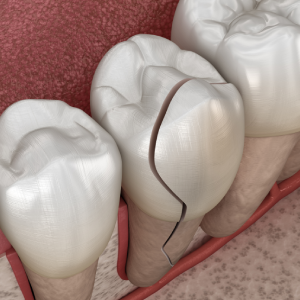"What is the most common dental emergency?" Dental emergencies can happen unexpectedly, ranging from severe toothaches to broken teeth. Knowing what to do in these situations quickly is really important for keeping your mouth healthy.
In this guide, we'll delve into the most common dental emergencies and equip you with the knowledge to handle them effectively. Whether it's tooth decay, gum disease, or a chipped tooth, being prepared can make all the difference in maintaining a healthy smile.
In the meantime, here's what you should know about the most common dental emergencies we handle at Arlington Dental Excellence.
Toothache
Experiencing tooth pain can signal various issues, such as tooth decay. While some toothaches can be managed at home, symptoms like swelling need urgent dental attention. Don't use aspirin or other painkillers directly on the affected area to prevent tissue damage. Instead, apply a cold compress to the outside of your cheek and contact a dental clinic for immediate care. After treatment, your dentist will emphasize the importance of basic oral hygiene to prevent future dental issues like cavities and decay.
Chipped or Cracked Teeth
Did you accidentally bite down too hard? A chipped or cracked tooth not only affects your smile but also causes pain. You can quickly rinse your mouth with some warm water and apply a small piece of gauze to stop the bleeding. Then, use a cold compress on the area of your face near the broken tooth to reduce swelling and ease discomfort. Your dentist may advise against consuming hard or crunchy foods and participating in activities like sports that could cause more damage to your teeth.
Some other Common Dental Emergencies Include:
Knocked-out tooth
If you have a knocked-out tooth, handle it similar to how you handle a chipped or broken tooth. Hold the tooth by the crown and use water to rinse the root only if it's dirty. Avoid scrubbing or removing attached tissue fragments. Depending on the severity of the injury, you may be able to reposition the tooth back into place but be careful not to push it into the socket. The sooner you do this, ideally within the hour, the better your chances of successfully saving and reattaching the tooth. If you're unable to reinsert the tooth, place it in a small cup with milk or water mixed with a pinch of salt.
Lost Filling or Crown
If you lose a filling or crown, it's crucial to address it promptly to prevent additional damage or potential infection. While waiting for emergency dental care, consider this temporary solution: place a piece of sugarless gum into the cavity. However, refrain from attempting to fix the tooth yourself to avoid causing harm. Alternatively, you can place the lost filling or crown in a zip-top bag and take it to your dentist's clinic for reapplication or to be fitted with a new crown.
Damaged Orthodontic Appliances
Braces are built to endure daily wear and tear from chewing, eating, and speaking. Despite their resilience, metal wires and brackets can break or protrude, causing discomfort as they poke your cheeks and gums. This discomfort not only causes inconvenience but may also hinder or reverse progress in aligning and straightening teeth. If this occurs, attempt to gently push the broken wire into a more comfortable position. If adjusting the wire isn't feasible, cover the exposed part with orthodontic wax, a small cotton ball, or a piece of gauze.
Abscesses
Infections within the mouth, especially near the tooth root or in the area between teeth and gums, present serious health risks. If you leave these infections untreated, they can spread to nearby teeth and gum tissues and possibly to other parts of the body. Not sure if you have an abscess? Watch out for a painful, pimple-like swelling on your gums. Reach out to your dentist for emergency treatment to avoid additional oral health complications.
Bleeding and Pain Following Tooth Extraction
It's common to have some pain and bleeding after a tooth extraction. However, if these symptoms persist even an hour later, it's important to contact your dentist.
In the meantime, cover the tooth extraction area with a thick gauze pad and apply some pressure by biting down on it.
Refrain from rinsing, drinking, eating, as well as sucking, spitting, and smoking to help in the healing process.
Basics of Preventing a Dental Emergency
- Maintain Regular Dental Checkups: Schedule and attend regular checkups and dental cleanings with your dentist. Routine examinations can help identify potential issues early and prevent them from escalating into dental emergencies.
- Practice Good Oral Hygiene: Make sure to brush your teeth nicely twice a day using fluoride toothpaste and floss daily to eliminate plaque and bacteria. Maintaining good oral hygiene habits decreases the chances of having cavities, gum disease, and other dental issues that may result in emergencies.
- Wear Protective Gear: If you play sports or perform activities with a risk of dental injury, wear appropriate protective gear, such as mouthguards. These can help prevent tooth fractures, knocked-out teeth, and other dental emergencies during physical activities.
So, what is the most common Dental Emergency? Whether it's a knocked-out tooth, severe toothache, or broken filling, prompt action is essential to prevent further complications. By prioritizing oral hygiene, wearing protective gear, and seeking timely dental care, you can minimize the risk of encountering dental emergencies. Remember, prevention is the key to maintaining optimal oral health.
Ready to prioritize your oral health and avoid dental emergencies? Book an appointment online with Arlington Dental Excellence in Arlington, VA. New patients can schedule the appointment by calling (703) 420-3253. Existing patients can call at (703) 525-0157. Your smile deserves the best care.
FAQ
What is considered the most common dental emergency?
The most common dental emergency is severe toothaches, often caused by tooth decay, infection, or trauma.
What Are the Leading Causes of Dental Emergencies?
Following are the leading causes of Dental Emergencies-Inadequate Oral Hygiene: Neglecting proper oral hygiene paves the way for tooth decay, cavities, and gum disease.
- Unhealthy Diet Choices: Poor dietary habits can contribute to dental problems such as decay and gum disease.
- Sporting Accidents: Trauma from sports activities can lead to dental emergencies, including broken or knocked-out teeth.
- Falls: Accidental falls can result in dental trauma, requiring immediate attention to prevent further complications.
What can happen if a severe toothache is left untreated?
If left untreated, a severe toothache can lead to complications such as abscesses, infections, and even tooth loss. It's essential to seek prompt dental care to address the issues and prevent further damage.





